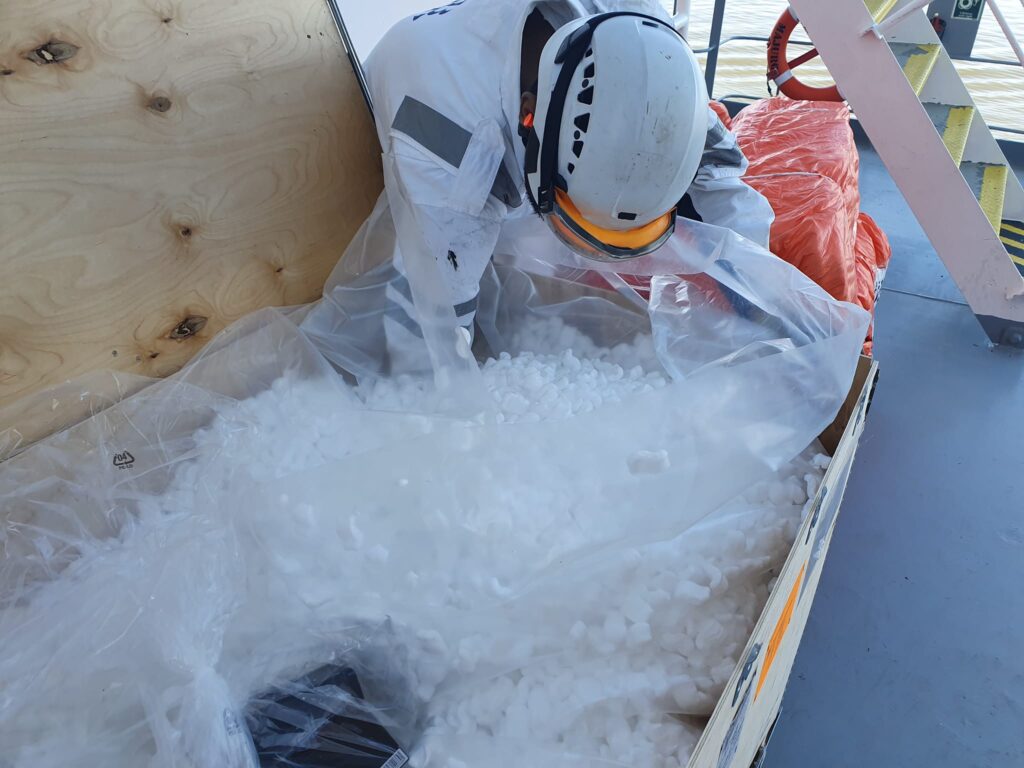As we deliver cleaner-burning energy around the world, we must do so in ways that minimise the impact from operations on the environment. Following international environment-related treaties in our daily work ensure we manage waste and hazardous materials onboard appropriately.
MARPOL Annex V: Prevention of Pollution by Garbage from Ships
Garbage from ships can be just as deadly to marine life as oil or chemicals. Vessels are instructed to strictly adhere to MARPOL Annex V guidelines in the treatment of garbage onboard. Our waste management policy requires separation, collection, storage and disposal of vessels’ waste. Bilge water, grey water and sewage are also treated with systems onboard before they are properly disposed.
Minimising Food Waste and Plastics
Seafarers are our frontline ambassadors and their actions reflect our corporate priorities and showcase what we are doing to protect the environment. Throughout the year, our minimising food waste and plastics return campaign raise awareness on the impact of excessive waste and provide recommendations on how to improve practices onboard. Vessels maintain a Garbage Management Plan and a Garbage Record Book and crew are encouraged to suggest ideas on how we can reduce waste. They can do so through channels such as emails, phone calls, and also via the company’s intranet platform, BW@Work. Crew have provided practical and valuable suggestions on how to handle and reduce waste. In partnership with fleet operation and procurement teams, we regularly present our feedback and suggestions for improvement to vendors, many who actively listen and improve workflows to reduce waste.

Some examples of our practical initiatives include the following:
– Reduce single-use plastics: In many of our vessels, reverse osmosis (RO) plants and RO-based filtration units are installed to provide potable water for crew, to reduce the need for bottled water.
– Phased introduction of LED lighting: During drydockings, fluorescent lamp tubes are replaced with more energy-efficient LED lighting.
– Returning dunnage and packaging materials: Crew often return crates, cartons, boxes and plastic wrappings to suppliers when receiving victuals, so that these materials can e recycled and reused.
Since 2020, we have pledged our support for the IMPA SAVE Council for Maritime Supply Chain Sustainability, an international coalition working to ensure sustainability in maritime supply chains, to reduce the use of single-use plastics onboard our vessels, thus reducing the amount of garbage generated.
Protecting Biodiversity, Protecting the Oceans, Protecting our Livelihoods
As a company we ensure compliance with all environmental-related regulations, such as ballast water and Inventory of Hazadous Materials (IHM) regulations. Beyond compliance, we invest in our fleet to improve voyage efficiencies and therefore reduced emissions. It makes sense, because we save costs and save the environment. We engage in efforts, big and small, to protect and preserve the oceans and biodiversity, and reduce consumption of resources.
Read More:

